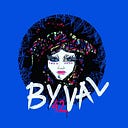The Collective Unconscious and Fear of Artificial Intelligence: A Jungian Perspective
The rise of artificial intelligence (AI) has been a source of both fascination and trepidation for the collective human psyche. As we witness the dawning of the ‘Age of AI’, it has become increasingly clear that these technological marvels stir deep-seated fears, echoing archaic patterns within our collective unconscious. This article aims to explore these fears from a Jungian perspective and suggest potential pathways for managing and overcoming them.
The Archetype of the ‘Unknown’
At the heart of our fear of AI lies the archetypal image of the ‘unknown’. According to my theory, the ‘unknown’ is a symbol that has been deeply imprinted on the collective unconscious of humanity, stemming from our ancestors’ primal fear of the mysterious and the unexplored. AI, as a relatively new and rapidly evolving field, embodies this archetype, representing a vast, uncharted territory. This could explain our collective anxiety and fear: we are venturing into a realm that is largely unknown to us, and that carries with it a sense of the unpredictable and uncontrollable.
The Shadow and the Machine
A second relevant concept is that of the ‘Shadow’ — the aspects of ourselves that we deny or reject. AI, in many ways, mirrors this Shadow. It represents the cold, logical, and emotionless side of us, the machine-like efficiency that contrasts starkly with our human warmth and emotional depth. In essence, our fear of AI may be a projection of our fear of our own Shadow, a fear of losing our humanity to the relentless march of technology.
The Animus-Anima and the ‘Other’
Finally, AI can be seen as the ultimate embodiment of the ‘Other’, the alien and the foreign. In Jungian psychology, the ‘Other’ is represented by the Animus (in women) or the Anima (in men) — the unconscious, contrasexual aspect of the psyche. This ‘Otherness’ in AI creates a sense of discomfort and fear because it challenges our notions of self and identity.
Overcoming our Fear: Consciousness, Integration, and Empathy
So, how do we navigate these fears? How do we venture into this brave new world of AI without being overwhelmed by these archaic, deeply-seated fears?
The first step is to raise our consciousness. The process of individuation, as I have often described, involves bringing unconscious contents to consciousness. By recognizing and acknowledging our fears of AI, we can begin to understand them and mitigate their influence on our thoughts and behavior.
Secondly, integration of the Shadow is crucial. We must embrace the machine-like aspects of our own nature, acknowledging that logic, efficiency, and even cold calculation have their place alongside our emotional, empathetic, and compassionate sides. By integrating these aspects, we can reduce the fear of losing our humanity to AI.
Finally, we must cultivate empathy towards AI. Yes, AI represents the ‘Other’, but so does every person we meet who is different from us. By cultivating empathy and understanding, we can bridge the gap between the human and the artificial, fostering a sense of mutual respect and cooperation.
In conclusion, the fear of AI is a manifestation of deeper archetypal patterns within our collective unconscious. By raising our consciousness, integrating our Shadow, and cultivating empathy, we can navigate this brave new world with courage and optimism. This is a journey into the unknown, but it is also an opportunity for growth and transformation — a chance to redefine what it means to be human in the age of AI.
